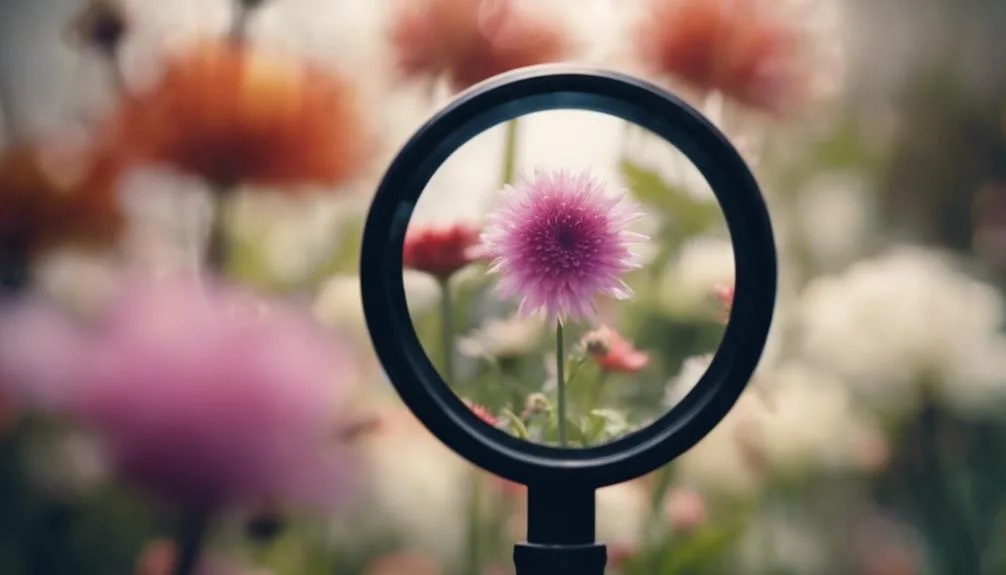In the realm of cognitive exploration and self-awareness, the dichotomy between mindful observation and complete sensory awareness presents a thought-provoking subject. Understanding the subtle distinctions between these two cognitive practices can unveil profound insights into the intricacies of our mental processes and their influence on well-being.
By examining how each approach cultivates distinct pathways to present-moment attention and nonjudgmental observation, we begin to unravel a narrative that goes beyond mere perception. As we navigate the terrain of mindfulness and awareness, the quest for clarity and purpose beckons, inviting us to explore the depths of our consciousness in pursuit of a more profound understanding of our inner workings.
Key Takeaways
- Mindfulness emphasizes nonjudgmental observation of inner experiences.
- Awareness encompasses information from all senses, including the environment.
- Mindfulness focuses on thoughts and emotions, while awareness includes external sensations.
- Mindful observation promotes present moment attention, while complete sensory awareness integrates all sensory input.
Contrasting Mindful Observation and Sensory Awareness
Mindful observation and sensory awareness, while both integral to enhancing present moment attention and understanding, exhibit distinct characteristics that warrant exploration in their nuanced differences. Cognitive processes play a pivotal role in mindful observation, focusing on internal thoughts and emotions with a nonjudgmental lens.
In contrast, sensory awareness encompasses external stimuli, incorporating information from all five senses to perceive the environment. While mindfulness emphasizes nonjudgmental observation, awareness alone may not inherently possess this quality.
Understanding these differences is crucial for individuals seeking to deepen their ability to stay present and cultivate compassion. By honing both mindful observation and sensory awareness, individuals can navigate the complexities of their inner and outer worlds with greater clarity and intention.
Key Differences in Mindfulness and Awareness
In exploring the distinctions between mindfulness and awareness, it becomes evident that their unique characteristics offer individuals profound insights into the interplay between internal observation and external perception.
Mindful attention primarily focuses on the nonjudgmental observation of thoughts, emotions, and bodily sensations. In contrast, sensory perception within awareness extends beyond internal experiences to include information gathered from all five senses, encompassing external activities and environmental stimuli.
While mindfulness emphasizes being present in the moment and cultivating compassion, awareness plays a crucial role in enhancing one's ability to stay focused and engaged with the surrounding world.
Understanding the subtle yet essential differences between mindfulness and awareness is paramount for individuals seeking to improve their overall wellbeing through a balanced integration of internal introspection and external sensory engagement.
Expert Insights on Mindfulness and Awareness

Within the realm of contemplative practices, experts offer valuable insights into the nuanced relationship between mindfulness and awareness, shedding light on their transformative potential for individuals seeking personal growth and enhanced well-being.
Expert Insights on Mindfulness and Awareness:
- Mindful Presence: Experts highlight the importance of cultivating mindful presence, focusing on nonjudgmental observation of thoughts and emotions.
- Sensory Engagement: They emphasize the significance of sensory engagement in fostering present awareness, encouraging individuals to immerse themselves fully in their experiential focus.
- Transformative Potential: Experts suggest that the integration of mindfulness and awareness can lead to living in the moment, fostering compassion, understanding, and overall well-being.
Impact of Mindfulness on Wellbeing
Enhancing personal well-being, mindfulness practices have demonstrated a profound impact on individuals' mental and emotional health. The benefits of mindfulness extend beyond awareness to encompass holistic well-being outcomes. Below is a table outlining some of the key mindfulness benefits and the resulting well-being outcomes:
| Mindfulness Benefits | Wellbeing Outcomes |
|---|---|
| Stress reduction | Increased emotional resilience |
| Improved focus and clarity | Enhanced self-awareness |
| Better emotional regulation | Greater sense of inner peace |
| Enhanced compassion | Improved relationships |
These outcomes illustrate how mindfulness practices can positively influence mental and emotional health, ultimately contributing to a higher quality of life.
Understanding Mindful Awareness Terminology

Understanding the terminology associated with mindful awareness is essential for grasping the intricacies of mindfulness practices and their impact on overall well-being. When delving into the world of mindful awareness, it is crucial to pay attention to the nuances in terminology and the conceptual distinctions between various terms. To navigate this landscape effectively, consider the following:
- Terminology Nuances
- Recognizing the subtle differences between terms such as mindfulness, awareness, and attention can deepen one's understanding of the practice.
- Conceptual Distinctions
- Distinguishing between mindful observation and complete sensory awareness is key to unlocking the full potential of these practices.
- Integration of Terms
- Integrating these terms into daily life can lead to a more profound sense of presence and well-being.
Frequently Asked Questions
Can Mindfulness Practices Enhance Creativity and Problem-Solving Abilities?
Mindfulness practices can enhance creativity and problem-solving abilities by fostering enhanced focus and promoting innovative thinking. Through intentional observation of thoughts and emotions, individuals can cultivate a mindset conducive to generating novel solutions.
How Can One Incorporate Mindful Observation and Complete Sensory Awareness Into Daily Activities?
To incorporate mindful observation and complete sensory awareness into daily activities, engage in mindful eating for workplace productivity and practice mindful walking in daily routines. Cultivating non-judgmental awareness can enhance focus and presence, fostering overall wellbeing.
Are There Specific Techniques to Deepen the Connection Between Mindfulness and Sensory Awareness?
To deepen the connection between mindfulness and sensory awareness, one can incorporate mindful breathing for grounding and engage in sensory exploration to heighten perception. This practice fosters a deeper understanding and appreciation of the present moment.
What Role Does Mindfulness Play in Improving Relationships With Others?
Mindfulness enhances relationships by fostering empathy, improving communication skills, aiding conflict resolution, and boosting emotional intelligence. Being present in interactions, non-judgmentally observing thoughts and emotions, supports understanding, connection, and positive dynamics with others.
Can Mindfulness and Sensory Awareness Practices Be Beneficial for Children and Adolescents in Their Development?
Mindfulness and sensory awareness practices benefit children and adolescents by enhancing emotional regulation and social skills, improving academic performance, and aiding in stress management. These practices foster holistic development and well-being in young individuals.
Conclusion
In conclusion, the distinctions between mindful observation and complete sensory awareness offer a rich tapestry of cognitive exploration and personal growth.
By unraveling the complexities of these practices and their impacts on mental well-being, we gain valuable insights into the transformative power of present-moment attention and nonjudgmental observation.
As we navigate the intricacies of modern life with heightened clarity and purpose, the journey towards holistic well-being continues to unfold, inviting us to delve deeper into the realms of mindfulness and awareness.

